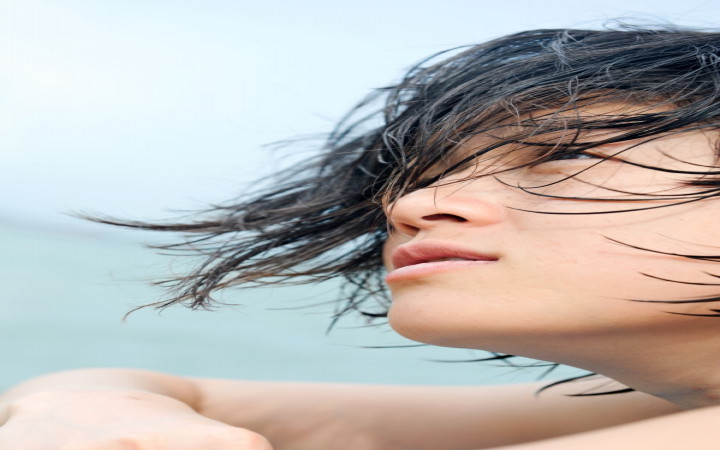Today’s Wonder of the Day was inspired by Cheyenne. Cheyenne Wonders, “Why does our hair get darker when it is wet?” Thanks for WONDERing with us, Cheyenne!
Do you like magic tricks? Have you ever wanted to be a magician? Did you know there's a trick you can do that'll amaze all your friends and all you need is a glass of water?
Here's what you do: first, ask your friends to tell you what color hair you have. Once they answer, pour the glass of water over your head! And just like that, your hair is now darker!
OK, so maybe that's not the best magic trick ever…especially since you end up wet at the end of it. But it does point out a curious fact that your friends can't deny: when your hair gets wet, it appears darker than when it was dry.
But is it magic? Nope! You've probably already guessed that it's simply science at work. So why does your hair appear darker when it's wet? Does the water add color to your hair? Could the water change the chemical composition of your hair?
While those explanations might seem to make sense, neither one is correct. Water, which is transparent, definitely doesn't add any color to your hair. It also doesn't change the chemical composition of your hair.
What water does do is affect the way light bounces off of your hair. Objects have the color we see, because they reflect certain wavelengths of light back to our eyes. The wavelengths correspond to particular colors.
Visible light, also known as "white light," seems colorless, but it's actually made up of all the colors mixed together. Each color has its own unique wavelength. Red has the longest wavelength, while violet has the shortest.
If you have red hair, your hair absorbs all of the other wavelengths and only reflects back the red wavelengths to your eyes. People with brown hair have hair that absorbs all wavelengths except brown, and so on with blonde and other hair colors.
When your hair gets wet, though, what happens? The water makes your individual hairs stick close together. The water also forms a thin film on your hair. Both of these occurrences affect the way light bounces off of your wet hair.
Rather than reflecting the same amount of light back to your eyes, wet hair reflects less light back to your eyes. Since your hairs are closer together when wet, they tend to trap and absorb more light. In addition, light that does get reflected back often hits the inside of the thin water film and gets reflected back into your hair, where more light gets absorbed.
When more light is absorbed by your wet hair, less light gets reflected back to your eyes. The result is that your hair appears darker than when it's dry. Your hair itself doesn't change, though. All you have to do is let it dry and it'll be back to its usual color!





